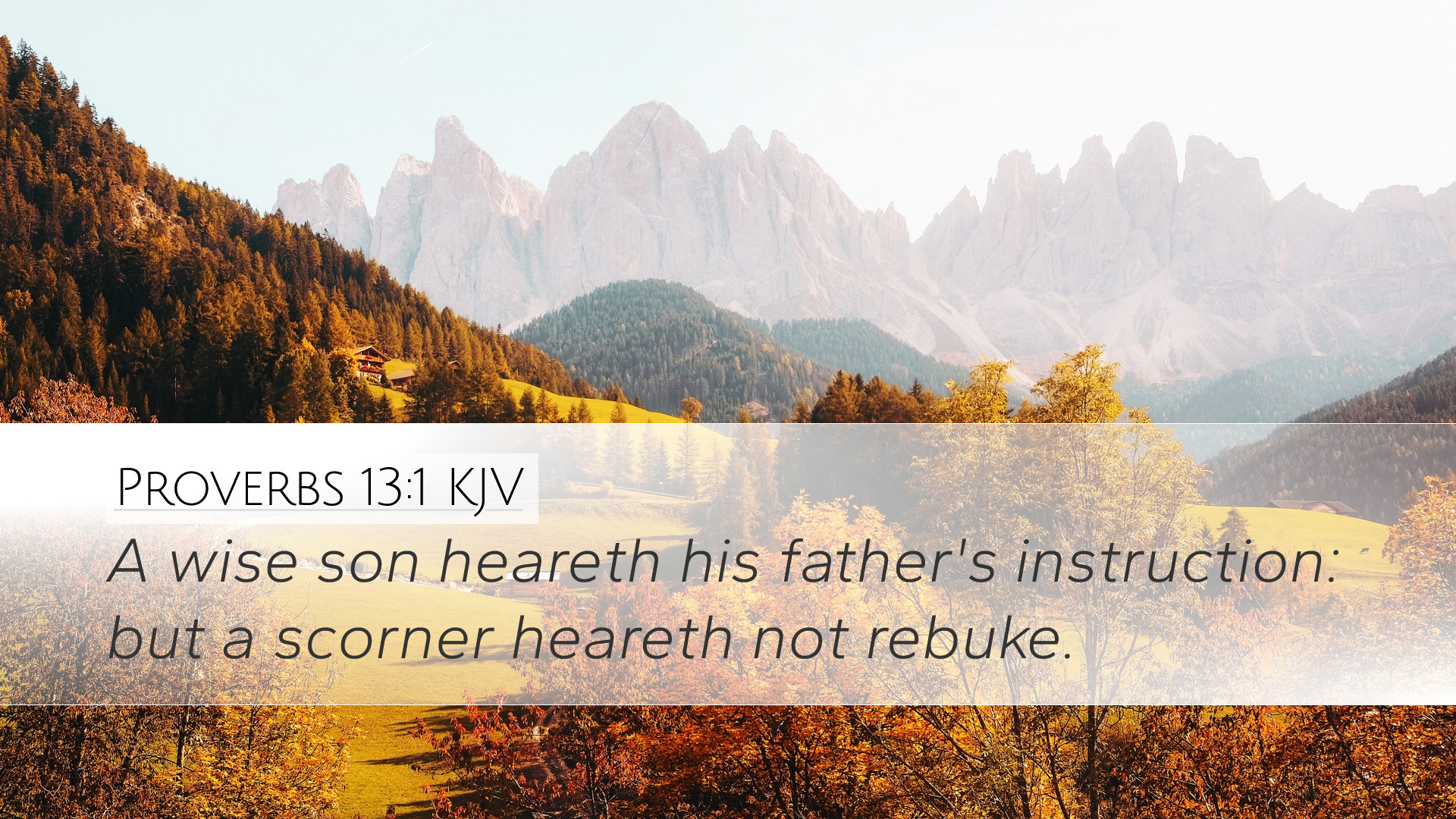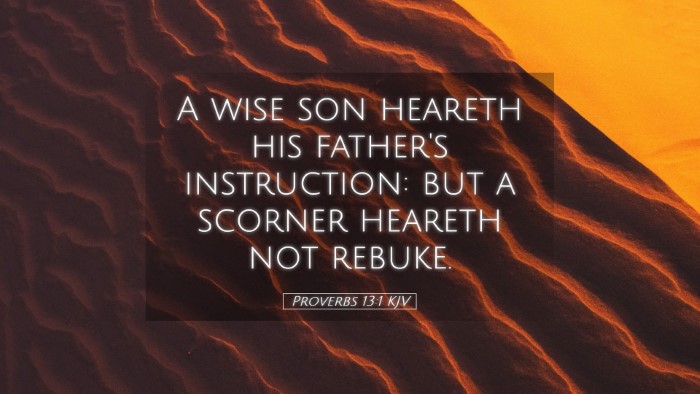Commentary on Proverbs 13:1
Proverbs 13:1 states: "A wise son hears his father’s instruction, but a scorner hears not rebuke." This verse encapsulates a critical principle of wisdom and the disposition toward instruction and correction, which is foundational in the pursuit of knowledge and understanding.
Understanding Parental Instruction
Matthew Henry emphasizes the importance of parental guidance in shaping wisdom. He observes that the "wise son" actively listens to the instructions offered by his father, viewing them as invaluable teachings that contribute to his growth. This listening is not passive; it involves a deep respect for authority and a willingness to learn from the experiences of others.
Moreover, the term "wise" distinguishes the son who embraces correction, suggesting that true wisdom is characterized by humility and openness to learning. When children heed their parents' counsel, they align themselves with divine wisdom, fostering relationships built on respect and understanding.
The Role of Instruction in Wisdom
Albert Barnes elucidates that instruction from father figures is a conduit through which wisdom is transmitted. The emphasis on "hears" signifies that wisdom is not merely acquired through hearing words but is actualized in the heart and mind of the listener. The wise son embodies diligence and attentiveness, actively seeking to apply the teachings he receives.
- The Importance of Listening: True understanding comes from listening and reflecting on teachings provided, as opposed to merely hearing absent-mindedly.
- Instruction as a Divine Gift: Viewing parental instruction as a form of divine guidance can inspire younger generations to cherish and prioritize such teachings.
Scorners and Their Rejection of Instruction
In contrast, the “scorner” depicted in this proverb represents individuals who dismiss correction and instruction. Adam Clarke highlights that a scorner is often characterized by pride and arrogance, which lead to their refusal to learn. This disposition not only stunts personal growth but also entrenches the individual in foolishness.
The scorner’s rejection of rebuke illustrates a broader spiritual truth: to reject wisdom is to embrace folly. Clarke notes that this creates a vicious cycle where the scorner's heart becomes hardened against wisdom, preventing them from recognizing the value of correction.
Moral and Spiritual Implications
The moral implications of Proverbs 13:1 extend beyond family dynamics into the broader context of community and society. In the realm of spiritual leadership, pastors and theologians can draw lessons from this verse concerning the reception of admonition and correction within the church body.
- Humility in Leadership: Leaders should model humility by being open to instruction and correction themselves, creating a culture where all members can grow together.
- Encouragement for Teaching: The verse serves as an encouragement for church leaders to continue instructing their congregations, recognizing that wisdom leads to fruitful living.
Conclusion
In summary, Proverbs 13:1 presents a profound contrast between the wise and the foolish. The "wise son" symbolizes those who embrace instruction and correction, cultivating a heart inclined toward wisdom. Conversely, the "scorner" embodies a rejection of valuable teachings, leading to a path of isolation and ignorance. For pastors, students, and theologians, this verse underscores the necessity of fostering an environment that values wisdom, humility, and receptivity to instruction.
Ultimately, Proverbs 13:1 serves as both an admonition and a guide for a life dedicated to learning and growth, encouraging each individual to weigh the teachings they receive and to lean into the guidance provided by wise mentors.


